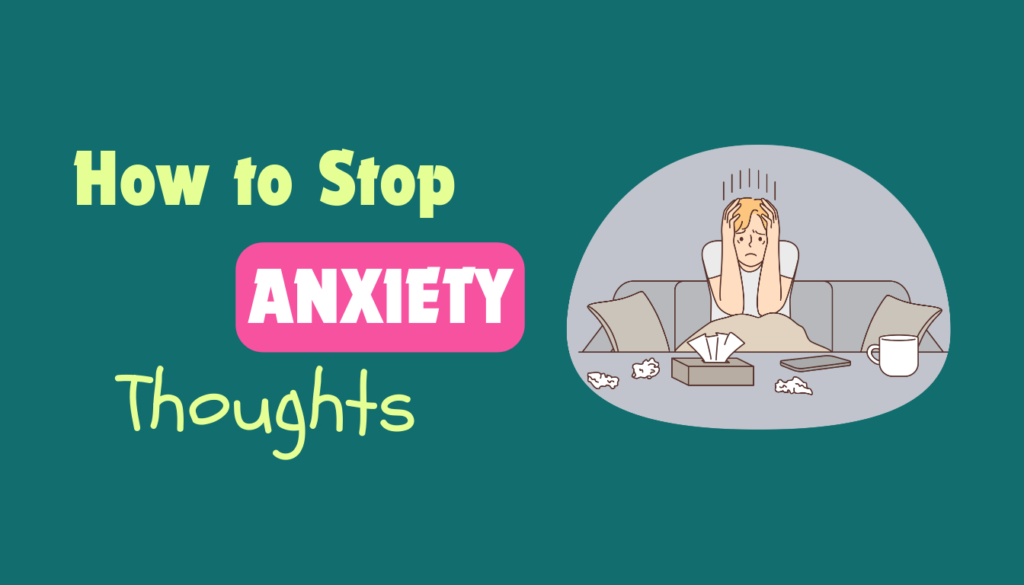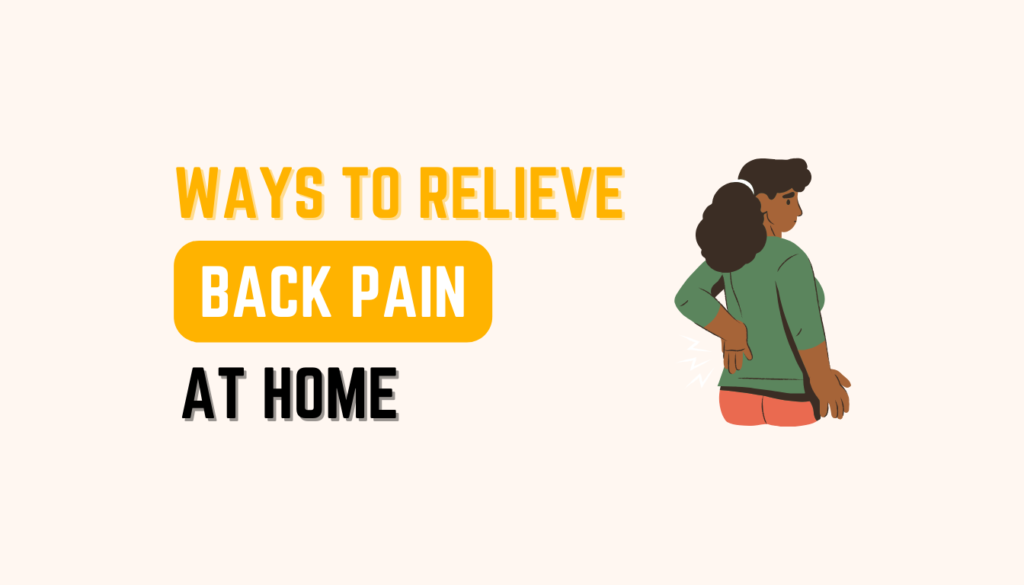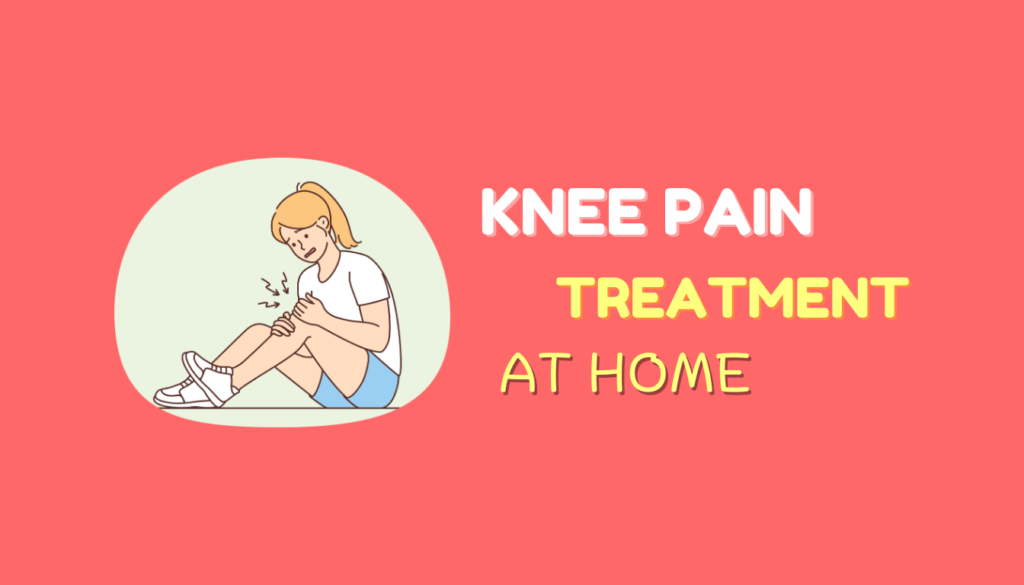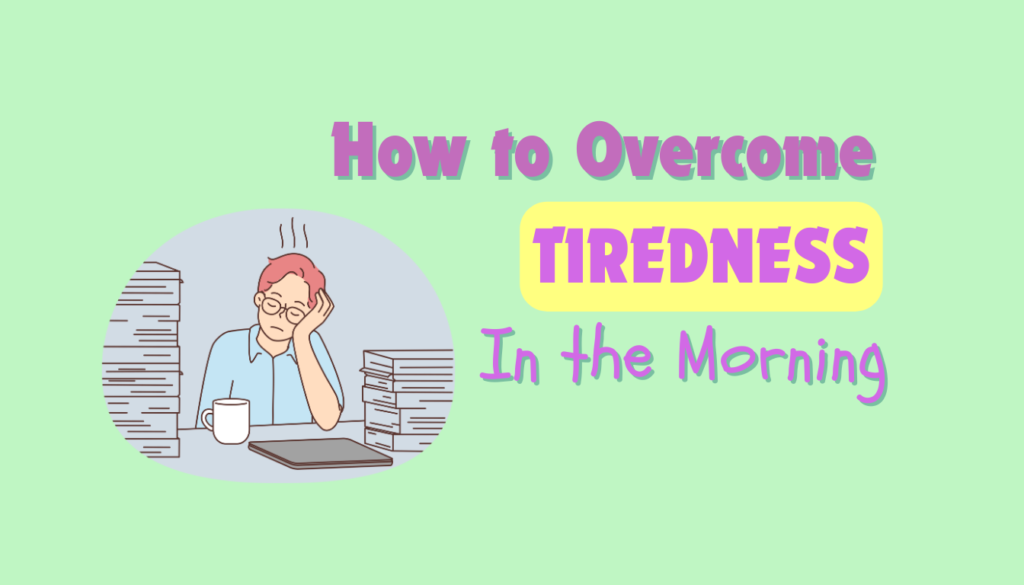Do you sometimes feel trapped in a cycle of worrying thoughts that just won’t quit?
It’s quite normal to feel a bit anxious now and then,1 but when it lingers and feels out of your control, it can seriously harm us.
The good news is, there are effective methods to combat these anxiety spikes.
Let’s uncover the strategies to manage your mind better, leading you to a more peaceful, self-assured state.
Understanding Anxiety and Its Symptoms
Worries, doubts, and anxieties are common in life. It’s natural to worry about things like unpaid bills or first dates.
But, when this worry is constant and overwhelming, it becomes a problem.2
Extreme worrying, always expecting the worst, and negative thoughts can hurt your mind and body. It can lower your emotional strength.
This can lead to restlessness, trouble sleeping, headaches, and more. Plus, it makes focusing at work or school hard.3
Chronic worrying is a key sign of Generalized Anxiety Disorder (GAD). This is a widespread condition that fills you with unease and worry constantly.3
Holding negative thoughts can make anxiety worse. Thinking that worrying protects you from bad things is also harmful. This belief makes you worry more.
Breathing Techniques to Calm Anxiety
Do you often find yourself worrying, especially at night? It makes you feel on edge and tense, right?
While telling yourself not to worry doesn’t help, there are ways to manage it. One powerful method is to delay your worries.
Instead of fighting a worried thought, allow yourself to think about it later. Designate a specific time and place for thinking about your concerns.
This way, you can tell yourself you’ll address it later. Jotting down your worries can also make them seem less overwhelming.
When your ‘worry time’ comes, you might even find a more balanced view of them.
Breathing exercises can do wonders for easing anxiety.
Breathe in and out slowly, deeply, and evenly for a few breaths.4 Inhaling through your nose and then out through your mouth works well to calm down.4
Just 2 to 5 minutes of these deep breathing techniques can make you feel better.4 Try belly breathing three to four times daily, 10 minutes each time, to reduce stress.4
If you focus on slow deep breaths for up to 20 minutes a day, you’ll see a difference.4 Also, breathing in and out the same amount of time helps manage anxiety better.4
Breathing in for six seconds and then out for six can really help calm you down.4 Yogic breathing like pranayama or lion’s breath, done up to six times, can ease anxiety.4
For a quick fix, try alternating nostril breathing; it’s good for handling anxiety.4 Don’t forget, guided meditation can break the cycle of anxious thoughts.
Changing how you’re sitting, repeating a calming word, or moving around can shift your focus from worry to relaxation.5
In India, a study on health workers found that practices like lion’s breath reduced stress.5
Frontiers in Psychology backs this, saying diaphragmatic breathing helps lower stress in adults. It improves how they feel and their physical stress signs.5
At Brigham Young University, research showed resonance breathing benefits heart health and mood under stress.5
Psychology Today’s studies back this up, suggesting long exhalations fight stress reactions and boost heart health over time.6
There are seven deep breathing methods that are great for anxiety.6 Anxiety signs might include aches, no focus, and poor sleep.6
Breathing exercises help slow your heart, lower blood pressure, and boost oxygen in your body.6 They suggest different ways like longer exhales, box and yogic breathing for anxiety.6
There’s info on 3-3-3, 4-2-6, and 4-7-8 breathing, and why they’re good for you.6
Practicing these techniques can control your breath and ease anxiety symptoms, like feeling out of breath.6
They also stress picking the right exercise for you and doing it regularly.6 Finally, they recommend using the Calm app for less stress, better sleep, and a healthier mind.
How to Stop Anxiety Thoughts
Do you often feel anxious and worry a lot?
You might see the world as a scary place because of cognitive distortions. These are unrealistic and negative thoughts.
They make everything seem worse than it is. Recognize that these thoughts are habits you can change.
First, learn to spot your negative thoughts. See them as guesses, not truths.
Ask yourself some questions: Is my thought really true? Can I look at this situation in a more positive way? How likely is it that my fear will come true? Is my thought really helpful?7
Remember, worrying doesn’t solve problems. It just makes you feel like you’re doing something about it.
Instead of worrying, focus on what you can actually do. Take steps to solve problems that are under your control. This will ease your anxiety more than just worrying will.7
Challenging your negative thoughts really works. It helps you control your anxiety. It’s like exercise for your brain. This practice makes you worry less and feel calmer and stronger.7 8
Lifestyle Modifications for Anxiety Management
Many people with anxiety issues benefit from psychotherapy or medications. But, changes in lifestyle and coping strategies can also help.
Staying active by exercising regularly is a great way to reduce stress and improve your mood.9
It’s crucial to steer clear of substances like alcohol, recreational drugs, nicotine, and caffeine as they can make anxiety worse.10
Practices like visualization, meditation, and yoga are also known to help with anxiety.
Making sleep and eating well a priority is important. A diet rich in vegetables, fruits, whole grains, and fish might lower anxiety, though more research on this is needed.10
Understanding why you feel anxious by involving loved ones and following your treatment plan is essential.
The Power of Relaxation Techniques
Relaxation techniques are key in fighting anxiety. Meditation for anxiety, visualization techniques, and yoga for stress relief work well for this.11
These methods include breathing deeply, meditation, and yoga. They help a lot when done often.11 They can tackle symptoms like tension, headaches, and not feeling still.
Practicing relaxation methods can reduce anxiety and stress.11
Finding what works best is different for each person. Mindfulness practices are also excellent for managing feelings and quieting the mind.11
Techniques like deep breathing can help bring calm and lower anxiety if done regularly.11
Relaxation has great health benefits. It slows the heart, lowers blood pressure, and helps digest food better.12
It regulates sugar in the blood, reduces stress hormones, and makes sure muscles get enough blood.12
This cuts down on muscle stress and helps with pain, focus, mood, and sleep.12 It also fights tiredness, anger, and increases how we handle problems.12
Many ways to relax include deep breathing, muscle relaxation, and focused thinking.
Others are massage, meditation, yoga, and using music and art.12 It’s important to practice regularly. This way, we notice stress signs and how our bodies react to stress.12
With time, we get better at relaxing. Trying different methods is good if one doesn’t work.12
For some with tough mental health issues or past abuse, relaxation might be hard. Then, it’s best to stop and get help.
Challenging Negative Thought Patterns
If you often feel anxious and worried, you might see the world as scarier than it is. These views are called cognitive distortions.
There are four main types: catastrophizing, overgeneralization, personalization, and all-or-nothing thinking. To change these habits, we must rewire our brains.13
Start by recognizing your negative thoughts. Don’t see them as facts, but as ideas to test.14
To challenge them, think differently. Ask yourself questions like: Is there proof my thought is true? Can I see it in a better light? How likely is my fear to come true? Is this thought useful?14
Worrying might make us feel less anxious briefly, but it’s not the same as solving problems. It’s better to focus on what you can change and act on those issues.14 13
Changing how we think helps us in three big ways: it makes us more positive, we enjoy things more, and we feel less stressed.13
Looking for solid proof and coming up with balanced thoughts fights automatic negativity.14 13 There are ten steps to stop negative thinking.
For instance, being aware of negative thoughts, pausing to think, and checking if they’re true.
Also, finding other possible reasons, focusing on the good, being grateful, getting advice, writing thoughts down, making it a routine, and celebrating achievements.13
Admitting when you feel overwhelmed and dealing with it can help a lot. It’s a strong first move in changing your thinking.14 13
If negative thoughts won’t go away and they start affecting your life, getting professional help is a good idea.13
The Role of Social Support
Sometimes, we need more than just lifestyle changes to deal with anxiety. Opening up to family and friends is key to handling anxiety.
When to know it’s time for professional help? If anxiety never stops, and it gets in the way of your life.
Also, if you worry a lot about everyday things or if panic attacks happen.15
It’s smart to check your health insurance for mental health coverage. Then, look at which doctors and therapists are in your insurance network.
Seeing your regular doctor is a good start. They might recommend someone who is good at treating anxiety. Cognitive behavioral therapy is proven to help and isn’t a long process.15
Having a community that supports you is also vital in anxiety management. Connection and feeling like you belong can lessen the effects of anxiety and PTSD.16
Joining social groups can encourage better habits like eating well, staying active, and staying away from harmful substances.16
Natural Remedies for Anxiety Relief
Many folks battling anxiety find help through therapy or medicine. But, lifestyle shifts and coping methods can be effective too.
Regular exercise can really cut down on stress and uplift your mood significantly. This includes a range of activities from walking to team sports.17
Cutting out alcohol, drugs, nicotine, and coffee is a smart step. These substances might make anxiety worse.17 18
Taking up stress management practices and relaxation techniques can also help. These might be practices like meditation, visualizing calm scenes, or yoga.18
Prioritizing sleep and eating well are also vital. A diet rich in vegetables, fruits, whole grains, and fish is linked to lower anxiety. But, we need more studies to be sure.17
Understand what triggers your anxiety, do this together with your family and friends. This can also help a lot with overcoming it. And, always follow through with your treatment plan.
Herbal supplements might offer some relief too, as studies point to the benefits of chamomile for generalized anxiety disorder.17 18
Moreover, essential oils like lavender and bergamot are praised for their calming effects. Acupuncture could be another avenue for exploring anxiety relief. Some findings suggest it might help.
Combining several natural remedies can boost how we manage anxiety. They offer constructive ways to tackle everyday stress.
Focusing on Actions Within Your Control
When you worry, you may feel less anxious for a while. But worrying and solving problems are not the same thing.7 It’s better to focus on what you can change and act on real problems.
Start by checking if a worry is really something you can fix or control.
Is it something you’re dealing with now, or just a future what-if? If it’s a what-if, think about how likely it is to happen. Is your worry about it realistic? Can you do something to solve or get ready for the problem, or is it beyond your control?
Tackling solvable issues directly is the key. For things you can’t change, shift your focus.7 This will help you stop the cycle of worry and start to make progress on your concerns.
The Anxiety and Depression Association of America suggests that fighting off anxious thoughts might keep them coming back.1
Cognitive behavioral therapy might take between 8 and 10 sessions, says David H. Rosmarin.1 A useful method to reduce anxiety is to set aside a 15-minute time each day to think about your worries.1
ADAA held a Live Webinar about intrusive thoughts with Drs. Kissen and Greene.8 Their advice includes not treating negative thoughts as facts.8
Before posting, the ADAA checks their blog posts to make sure they’re helpful and respectful.8
Conclusion
Anxiety is normal, but too much can harm you. When it’s always there and you can’t control it, things get tough.
You might start worrying all the time and see everything in a negative light. This can grow into Generalized Anxiety Disorder, a more serious problem.7
The bright side is we have ways to tackle these thoughts and take back control of our minds and hearts.
Learning about anxiety’s signs and reasons helps a lot.7 We can take a full-body approach to handle it.
This means learning how to breathe better and changing bad thoughts to good ones.7 19
Living healthier with exercise, eating well, and staying on top of stress is also key.7 It’s smart to also get help from professionals and lean on friends and family for support.
This teamwork is critical for long-lasting ways to deal with anxiety.7 19
Dealing with anxiety isn’t easy and takes time and effort. But, it’s possible to get better by using the right strategies consistently.7 19
This can help break the worry and anxiety loop. Eventually, we can find peace and happiness again.
Source Links
- https://www.webmd.com/mental-health/features/ways-to-reduce-anxiety
- https://newsinhealth.nih.gov/2016/03/understanding-anxiety-disorders
- https://www.webmd.com/anxiety-panic/anxiety-disorders
- https://www.healthline.com/health/breathing-exercises-for-anxiety
- https://www.priorygroup.com/blog/breathing-exercises-for-anxiety
- https://www.calm.com/blog/breathing-exercises-for-anxiety
- https://www.helpguide.org/articles/anxiety/how-to-stop-worrying.htm
- https://adaa.org/learn-from-us/from-the-experts/blog-posts/consumer/thoughts-are-just-thoughts
- https://www.uhc.com/news-articles/healthy-living/coping-with-anxiety-depression
- https://www.parkview.com/blog/lifestyle-changes-for-managing-anxiety
- https://medicine.umich.edu/sites/default/files/content/downloads/Relaxation-Skills-for-Anxiety.pdf
- https://www.mayoclinic.org/healthy-lifestyle/stress-management/in-depth/relaxation-technique/art-20045368
- https://www.calm.com/blog/reframing-negative-thoughts
- https://www.healthline.com/health/mental-health/stop-automatic-negative-thoughts
- https://www.ncbi.nlm.nih.gov/pmc/articles/PMC4274570/
- https://www.verywellmind.com/social-support-for-psychological-health-4119970
- https://www.healthline.com/health/natural-ways-to-reduce-anxiety
- https://www.webmd.com/anxiety-panic/natural-remedies-for-anxiety
- https://www.anxietycanada.com/articles/helpful-thinking/





